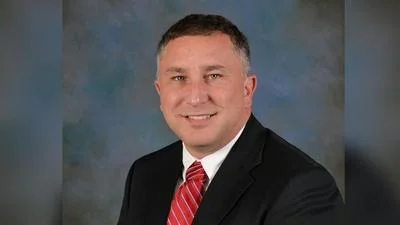State Rep. Thomas Bennett (R-Watseka) | repbennett.com/
State Rep. Thomas Bennett (R-Watseka) | repbennett.com/
In a press conference on March 24, Rep. Thomas M. Bennett (R-Pontiac) argued for a bill that would give volunteer emergency workers a $500 income tax credit.
"[My district] has over 60 small towns villages and communities - a very rural area. Many of our towns cannot afford the expense of full-time firefighters and we rely on our volunteers to respond to emergencies 24/7 whether they're out on the Interstate 55. Interstate 57, or local, state, or county roads, they're there and these local volunteers make the difference between life and death when seconds truly count. They train, train, and the train some more" said Bennett.
Bennett said the credit would be an incentive toward keeping volunteer companies staffed.
"These good men and women give selflessly to all of us, and they're volunteer public servants in the truest sense of the term," Bennett said. "But now we're facing a major crisis, as it's becoming more difficult to staff fire departments in rural areas. At times, it requires trucks and firefighters from multiple departments. Some have moved away to find jobs; others have gone to school, or because of family needs they moved on. This tax credit is a small way that we can say thank you to them for doing what they do. It's an additional incentive that we can use to attract such volunteers to the fire service so that we can keep our community safe for a long time to come."
On March 25, Senate Bill 3027 was re-referred to the Senate Rules Committee. It was originally filed by Sen. Christopher Belt (D-East St. Louis) in January. If approved, it would go into effect immediately and would require that eligible volunteer emergency workers receive no more than $10,000 for their service in the tax year.
Another, Senate Bill 3224, attempted to create a $500 tax credit for volunteer emergency workers. It was filed by Sen. Jason Barickman (R-Bloomington) on Feb. 11, 2020, and the last action was on Jan. 13, 2021, with no further action scheduled.






 Alerts Sign-up
Alerts Sign-up